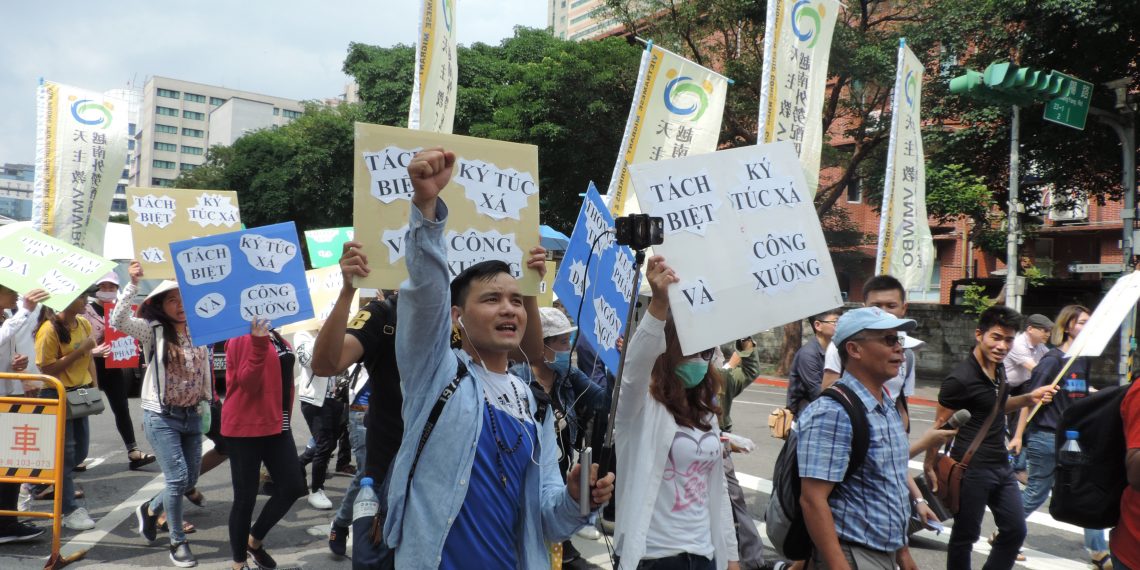Taipei, Nov. 10 (CNA) Taiwan’s Legislative Yuan approved a third reading of amendments to the Employment Service Act on Friday, by which employers or employment agencies could be subject to a fine of up to NT$300,000 (US$9,741) for violating migrant workers’ rights.
Democratic Progressive Party Legislator Wu Yu-chin (吳玉琴), the amendments proposer, said that under the amendments, brokers cannot detain the migrants’ identity documents or work permits against the will of employers and workers; violators would be fined between NT$60,000 and NT$300,000.
Wu pointed out that according to the new rules, employment agencies would also face a fine from NT$300,000 to NT$1.5 million if they are involved in sexual assault, human trafficking, restriction of personal freedom, grievous bodily harm or homicide and they have to report any case of the mentioned felonies perpetrated against migrant workers within 24 hours.
She added that brokers who contravene the amendments could lose their operating permit and could not reapply for it in five years.
The DPP legislator noted that the new rules require employers to report to the local government and provide a detailed written record if migrant workers are absent for three days, and the workers could appeal to local labor departments against the false claims filed by employers, so that they can reinstate their work permit.
Wu said the amendments echo the New Southbound Policy under the government of President Tsai Ing-wen (蔡英文) and are a new human rights milestone since the 2016 amendments to the Employment Service Act, which abolished the rule that migrant workers should leave Taiwan every three year.
However, researcher Chen Hsiu-lien (陳秀蓮) at Taiwan International Workers’ Association (TIWA) said that while the amendments could improve the current working conditions of migrant workers, they include loopholes.
For example, instead of completing outlawing the practice of withholding migrant workers’ passports, the amendment simply leaves it up to the broker to work it out with the migrant. Given the unfair situation between the two, the broker would have the upper hand and could use a legal agreement with migrant workers to detain their ID documents.
Brokers could demand that if the workers want the job, they would have no choice but to agree to have their documents withheld, which would put them in a vulnerable situation, including not being able to leave a job, despite poor working conditions or abuses.
“The government needs to fundamentally improve labor relations and the mutual trust between migrant workers, employers, and employment agencies,” Chen said.
Cre: Focus Taiwan








